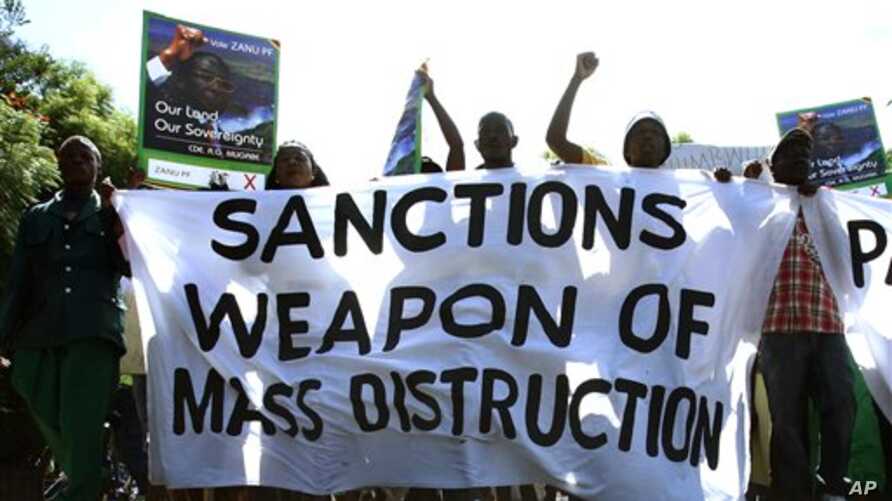Former Economic Planning and Investment Promotion minister, Tapiwa Mashakada, has challenged the President Emmerson Mnangagwa-led Zanu-PF government to address issues that triggered the West to impose economic sanctions on Zimbabwe instead of continuously mourning over the embargo.
The government has since the era of late former president Robert Mugabe been calling for the removal of the nearly two decades –long sanctions which Harare says are hampering the economic development of the country.
October 25 was last year set aside by the Southern African Development Community (SADC) as the day for the regional bloc to campaign for the lifting of sanctions against Zimbabwe.
Speaking in Parliament Thursday, Mashakada said it was important for the government through the Foreign Affairs and International Trade Minister, Sibusiso Moyo, to address issues that gave rise to sanctions.
“Our role as opposition is not just to attack but also to advise,” said Mashakada who is a member of the opposition MDC.
“Our advice is that let us be very frank and address the issues that have given rise to sanctions. Let us be meticulous and address those issues within the context of diplomacy and international relations. Let us resolve those outstanding issues or sticking issues with Europe, America and engage them effectively as you (Moyo) are doing.”
He said the land question, breakdown in human rights, political violence and breakdown in the rule of law among other related factors led to the imposition of sanctions on the country.
“Those issues must also be addressed as I have highlighted so that we have no excuse for any other country continuing to maintain sanctions on Zimbabwe,” he said.
“The other issue related to sanctions is that we must not harp on them. It must not be a mantra. Ian Smith was under sanctions but he did not harp on that. It was not a mantra but what he did was to devise sanctions busting methods. So, as a new dispensation, you must come up with new sanctions busting methods like what Smith did.”
He added: “Look at how he re-industrialised, import substituted even during sanctions. He did not make it a mantra as we want to make it today. Look at Cuba, how it has withstood sanctions over so many years, the blockade. So, let us not make this a mantra because we will then fail to come up with innovative and progressive measures to develop our country if we make it a mantra.”
Mashakada said it was also important for the government to compare the impact of sanctions on Zimbabwe with that one corruption to determine what can be controlled instead of just mourning.
“The final advice I want to give you is that the international community will always change goal posts,” said Mashakada.
“Do not be under any illusion that the removal of sanctions will open an Eldorado for Zimbabwe. That is not correct. Sanctions can be removed today and we remain poor and no resources will flow to Zimbabwe. They will change goal posts. For now, whilst we want sanctions to be removed, we must also address the issue of our international debt arrears. I can foresee that as another problematic issue, of course they can remove sanctions but they will say, you owe the International Monetary Fund (IMF), World Bank (WB) or European Investment Bank so much, so we cannot give you new capital.”

